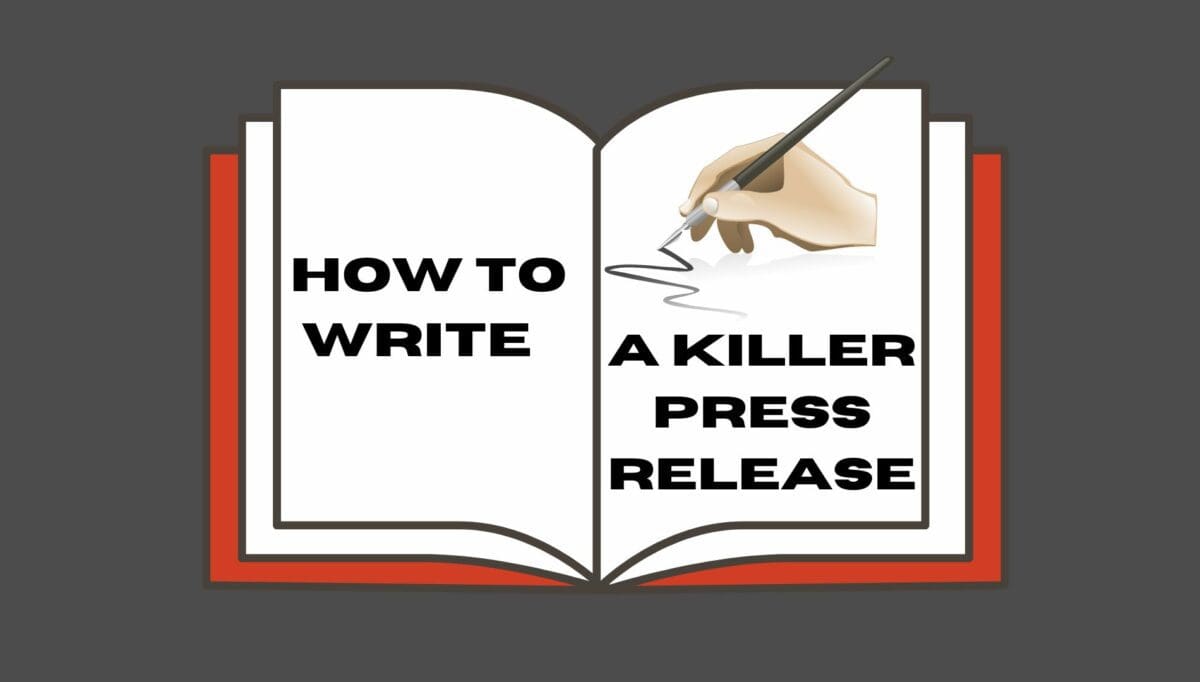
Voice cracking usually happens when the vocal muscles stop working for a moment, interrupting the sound produced. Here are some of the most effective remedies to help prevent this.
Professional singers call voice breaks the passaggio, with unintentional register breaks called voice cracks. These cracks are real but they are not forever, and with experience and research it only takes a little work to cure. Voice cracks can be stopped through continuous vocal exercises, breathing exercises and physical exercises.
In this article, we’ll teach you how to stop voice cracks when singing and prevent vocal fatigue.
Are you releasing new music?
Book a meeting with a Music Gateway A&R today.
Discuss release strategies, distribution, growing your fanbase, organic playlisting, press, radio and more.
How to prevent voice cracks when singing
Here are our top tips for preventing voice cracks, taking proper care of your voice, and remedies for voice cracking you can start using today.
7 Remedies for voice cracking when singing
Here is what you need to practice to help prevent and get rid of voice cracks.
1 Breathing the right way
When singing, inhaling the air has to be done with the help of your diaphragm. The diaphragm helps you carefully give the amount of air needed for the vocal folds to vibrate and make the sound without straining and making the voice crack. Therefore, engaging the diaphragm when singing gives you better vocal protection. When you understand these mechanics, knowing how to stop voice cracks will become a lot easier.
Eric Arceneaux, a well-known YouTuber and vocal coach, gives a very good example in his series “How To Sing From The Diaphragm”, which you can see below:
2 The crucial vocal warm-up
Warming up your vocal folds is very important because it is linked to how well they will perform. The voice warm-up should never be done on full volume, and if it’s hurting, then you are forcing it.
Here are some warm-ups and vocal exercises to help prevent voice crack.
Lip roll
It starts with your lips connected and letting the air get out through your lips while making your lips vibrate (and slightly tingle). These can be sung on scales or simply low to high notes and vice-versa. Lip rolls also engage your diaphragm, thus it is a good way to start engaging your body with the singing.
Here’s another one of Eric Arceneaux’s vocal warm-up demonstrations:
Humming
Start by making the “mmm” sound whilst imagine having a small wild apple in your mouth when doing this exercise, as it adds depth to the sound and it takes away from the strain on the vocal folds and facial muscles. This exercise can be performed on scales or arpeggios too. Just remember not to go too high up, rather stay in your comfortable vocal range.
Vowels
Warming up on vowels helps to condition your tone. You can sing vowels such as “aa-ee-ah-oh-oo” or “aa-ee-ei-oh-oo” either on the same note or move up and down a scale. The secret is to sing all the vowels on one breath and then inhale and sing all over again.
Sirens
This sound is imitating the vehicle siren by doing extended pitch glide on different sounds like “si-nnnnnng”, “rrrrrrr”, “brrr”, “aaaa” etc.
You can find a video by Dr Daniel K. Robinson covering the different voice sirens here:
Once you completed the simple version of these exercises, you can always make it more advanced by adding a different progression to the sounds, making them shorter or longer.
3 Workout and keep active
It is your diaphragm that helps you inhale, but it is your abdominal muscles that help you exhale and have control over the diaphragm when you do it.
Thus, Your abdominal muscles help you control your breathing when you’re singing and they need to be trained for that. Working out will also improve your posture and give you more confidence.
Moreover, physical exercises increase the blood flow to the muscles, which raises your body temperature warming it up along with your vocal folds. Some artists are even running around the stage to do it.
4 Facial exercises
Facial and tongue exercise will help you tremendously by bringing ease to the pronunciation of words, opening your mouth to different sounds and taking away the strain on the muscles around your cheeks.
You can rotate your tongue in your mouth to the left and right, open your mouth as wide as you can and then squeeze the lips as tight as possible etc.
Anna from Verba Vocal Technique gives a very nice example in combining those in her video:
5 Conditioning the voice through food and drinks
What we eat and drink before we sing is very important because these affect how our body reacts afterwards and how our vocal folds perform. What you probably want to remember is what you actually are allowed to eat before singing, which is chicken, fish, nuts, peanut butter, honey, fresh fruits, sweet potatoes and other yellow vegetables, and dark leafy greens.
If you want to discover what to avoid, you’ll find this other article useful:
6 Silent resting: the vocal rest for singers
Silent resting aims to take any type of pressure from the vocal folds by avoiding speaking and singing.
This means you should consider taking a few hours or even full days of resting (in more serious vocal conditions) to help your vocal folds recover properly before you put high demand on them.
7 Song mapping and planning
Singing involves a lot of emotions and psychological engagement. So many of us don’t hit specific notes just because of the fear of singing them, and cracks can be a result of fear too.
For this, we recommend you think the song through, both because you need to know when you can take your breaths, but also because you have to put thought on the sounds too.
This way you are not only protecting your voice throughout a series of songs, but you also give them colour and character.
What is a voice crack?
A voice crack occurs when the vocal folds spasm and release, which makes the voice enter a higher register (usually falsetto) for a moment or two. This uncomfortable sound can be a real problem, especially for younger singers.
Why does the voice crack during singing?
The reason your voice cracks when you’re singing is because of the incapacity of your vocal folds to vibrate at the pitch you desire when trying to sing a sound, no matter how much you force it.
What causes voice cracks?

There can be many different causes for voice crack, such as illnesses that come with inflammation and mucus, or overall vocal fatigue. Puberty can cause voice cracks for the simple reason that the size of the vocal folds change and they no longer ’remember’ the positions to different sounds.
However, for most of us, they start because our vocal folds don’t receive the necessary support that would assist with singing in a healthy way.
What we call singing is not only the part where your vocal folds vibrate. Singing involves a variety of muscles, your respiratory system and even the products you consume that contribute to the singing exercise. This is why stopping voice cracks means not only focusing on your vocal folds but your body as a whole.
How to stop voice cracks and vocal fatigue – some additional tips

- Avoid screaming, yelling and talking loud as a general rule, as these can cause inflammation to your vocal folds.
- Avoid clearing your throat as the mechanism behind that has a harmful result on the vocal cords.
- If you are living in a dry climate, use a humidifier to help moist the air you breath in your room. This helps moisten the vocal folds.
- Always keep yourself hydrated to make sure that your vocal cords are moisturised for when they vibrate.
Why are these remedies important?
A very good explanation to that question was given by Lucille Rubin, PhD. in the Journal of Voice, where she states that the body constantly needs to be trained and adapted to different conditions, such as “physical, emotional, psychological, or environmental”.
For example, you don’t run a marathon without any training and adaptations. It is only when you don’t do so that you suffer injuries. It is the same with your voice. Continuous pressure to the vocal folds without proper adaptations and preparations will lead to vocal fatigue and therefore, voice cracks.
Final thoughts
There is no magic potion and instant way to recover, but the good part is, your journey to stopping voice cracks will help you gain control over your voice. You are not broken, you are just not yet supporting your voice box correctly in delivering the beautiful sounds that you aim for.
Multiple worldwide artists have been through it, thus, there’s no need to be discouraged. Just breath in, breath out and get working on becoming a better singer right away!
Interesting fact
A lot of people confuse voice cracks for vocal fry. Voice cracks can be intentionally achieved by pushing the air on an uncomfortable high note. This strains from the focus on your throat so it isn’t good to do regularly.
Vocal fry, on the other hand, is the controlled drop of your voice in your lowest vocal register, that pushes the vocal folds to vibrate giving the sound a creaky texture.
Share with us how far you are in your mission to stop voice cracks and what worked best for you!









